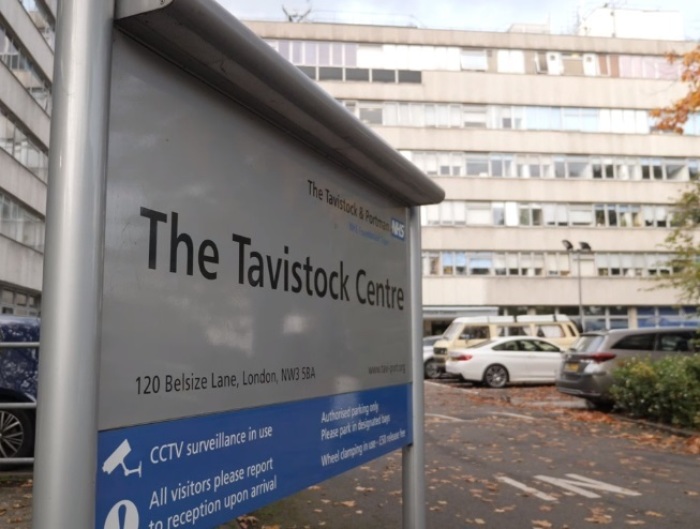Medical testimony against UK gender clinic in court case released: 'Live experiment on children'

Medical testimony shared in recent U.K. court proceedings against a gender clinic in London regarding the prescribing of puberty-blocking drugs to gender-confused minors has been published.
Attorneys for the Daily Mail argued in court Sunday that significant public interest exists in disclosing the evidence that doctors presented during the judicial review against the Tavistock and Portman NHS late last year after it had been previously prevented from being released.
The case against the Tavistock clinic was brought by Keira Bell, a 23-year-old woman who has detransitioned after having identified as transgender during her teen years. Bell argued that she was not capable of understanding the long-term risks to her health, was making "brash" choices at the time, and the combination of puberty blockers and cross-sex hormones likely sterilized her. Bell also underwent a double mastectomy, which she also came to regret.
Christopher Gillberg, a child psychiatrist who testified during the judicial proceedings, likened prescribing hormonal agents to halt normal puberty in minors to a "live experiment" on vulnerable youth.
"In my years as a physician, I cannot remember an issue of greater significance for the practice of medicine," he said.
"We have left established evidence-based clinical practice and are using powerful life-altering medication for a vulnerable group of adolescents and children based upon a belief."
Among the other things that were revealed during the hearing was that puberty blockers stunt bone and brain development, teen girls undergoing medicalized gender-transition are urged to pick sperm donors to fertilize their eggs and then freeze them, and clinicians are not warning patients how the experimental treatments put their fertility at risk.
It was also presented that children on the autism spectrum are being led to believe on the internet that they are transgender and that youth who later regret transitioning wind up "locked" in a body that has been harmed.
"[T]here was no other field of medicine where such radical interventions are offered to children with such a poor evidence base," said Stephen Levine, a clinical psychiatrist from Ohio who challenged the idea that the gender drugs were reversible.
In his submission to the court, Levine also highlighted severe cardiovascular complications that come with the experimental hormones, such as substantial risks of heart attacks in females and deep-vein blood clots in males.
The U.K. High Court held in its decision that medical professionals should not allow children ages 16 and 17 to go on puberty blockers without first seeking the consent of the courts and doctors who prescribe them to under-16s without court authorization will face a higher degree of scrutiny for clinical negligence.
Baroness Nicholson, a member of House of Lords, voiced her disgust that young people were being treated in such a fashion.
"Puberty blockers are ... a harrowing, physical destructive experiment on immature boys and girls. It closes normal development in favour of a painful life and a curtailed barren future – the NHS should never have allowed such unresearched use of public money on irremediable surgery on healthy bodies," she said.
Defenders of puberty blockers as a legitimate course of medical treatment, such as Tavistock Director Polly Carmichael, have insisted that delaying the pubertal processes with blockers gives patients more time "to think about their gender identity."
Sophie Scott, a University College London professor, disputed the claim during her testimony, noting the harmful impact the drugs have on the brain.
"I am concerned that the current treatment regime practiced by the Tavistock is exposing young people to significant risk of harm," she said.
The ruling against the Tavistock clinic came after years of growing scrutiny as whistle blowers drew attention to internal practices within the Gender Identity Development Service.
In a July 2019 open letter to Carmichael, Kirsty Entwistle, who until October 2018 had been a staff psychologist at GIDS in Leeds, expressed her concerns that clinicians were telling children and their families that puberty blockers were "fully reversible" when in fact the long-term impacts are unknown.
A climate of fear existed within the clinic among staff who were troubled about internal protocols but did not voice their concerns for fear of being labeled transphobic, she explained. A disproportionate number of the children being treated at the clinic were suffering from a range of other mental health comorbidities and were living in poverty, she said.





























